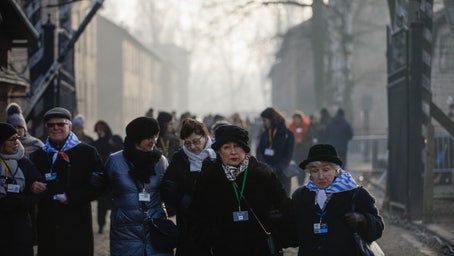As the 2024 election draws near, concerns are mounting over the potential impact of deepfakes, sophisticated AI-generated videos that can spread misinformation and erode public trust in the electoral process.
A federal judge has blocked a California bill that aimed to outlaw AI-generated deepfake content and require social media platforms to remove "deceptive content." The preliminary injunction, granted on Wednesday, comes just two weeks after Democratic Governor Gavin Newsom signed the controversial measure into law.
The Hamilton Lincoln Law Institute (HLLI) filed the lawsuit on behalf of Christopher Kohls, known online as "Mr. Reagan," who creates satirical political videos. Kohls argued that the bill was unconstitutional, infringing on protected forms of critique, parody, and satire.

Deepfakes: The Looming Threat to Election Integrity
The court agreed, stating that California had no "license to bulldoze over the longstanding tradition of critique, parody, and satire protected by the First Amendment." HLLI is unsure whether the state will appeal the ruling.
Deepfakes are becoming increasingly sophisticated and realistic, making it difficult to distinguish them from genuine videos. This poses a significant threat to election integrity, as they can be used to spread misinformation, manipulate public opinion, and undermine trust in candidates and institutions.

Deepfakes: The Looming Threat to Election Integrity
In the run-up to the 2024 election, experts warn that deepfakes could be used to discredit candidates, spread false narratives about voting processes, or even interfere with the actual voting process.
Regulating deepfakes is a complex task, as it requires balancing the need to protect the integrity of elections with the right to free speech. The California bill aimed to address these concerns by outlawing "deceptive deepfakes" while preserving satire and parody.

Deepfakes: The Looming Threat to Election Integrity
However, critics of the bill argued that it was overly broad and could stifle legitimate political expression. The injunction granted by the federal judge suggests that such concerns have merit.
Tesla CEO and X owner Elon Musk, a vocal critic of Newsom, has expressed strong opposition to the California deepfakes bill. Musk has argued that the bill is "totalitarian" and would "kill creativity."
The debate over deepfakes centers around the balance between free speech and public safety. While it is essential to protect free expression and satire, it is equally important to prevent the spread of misinformation and interference in the electoral process.
Finding the right balance will require careful consideration and ongoing dialogue among lawmakers, policymakers, and technology companies.
As the 2024 election approaches, it is crucial to address the potential impact of deepfakes and develop effective measures to mitigate their threat to election integrity. This will require continued collaboration between government agencies, technology companies, and civil society organizations.
Failure to address this issue could have serious consequences for the legitimacy of our elections and the future of our democracy.










